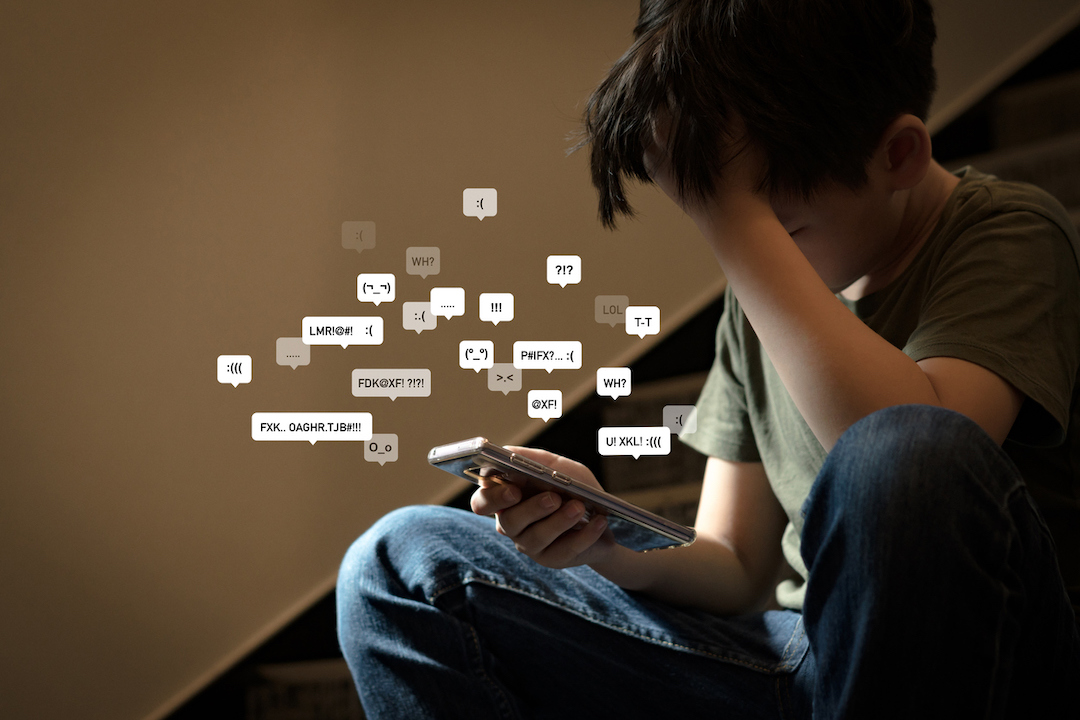Kids are better equipped to cope with cyberbullying when they maintain healthy in-person relationships, study shows.
Researchers from the University of South Australia have drawn a link between social connections for teens and their ability to remain resilient in the face of online bullying. By following a few simple steps, parents can support young people in their development and overall wellbeing.

© Jatuporn Tansirimas
The reality of cyberbullying
Sadly, cyberbullying is becoming increasingly common in a digital age. In fact, in the past six months, 44 percent of Aussie teens report having a negative online experience.
Whether it takes the form of threatening texts, exclusion, harassment, or the circulation of images and videos without consent, cyberbullying can cause serious harm.
Equally, when young people do not have strong connections in their schools and communities, they lose the social ‘buffers’ they need to better understand and respond to negative behaviours, whether it be in person or online.

Suggested strategies
Dr Carmel Taddeo, cyberbullying research expert and change analyst, states that parents cannot always stop cyberbullying, yet they can promote positive coping strategies by encouraging young people to seek healthy friendships in the real world.
In their new book, Cyberbullying and Online Harms, Dr Taddeo and Professor Barbara Spears suggest several strategies that parents can use to support positive coping in their teens:
- Develop your child’s self-esteem and confidence
- Role model positive communication – listening, negotiating, being assertive and respectful
- Provide opportunities for your child to connect with others face-to-face and online
- Ask how your child feels about their connections and friendships
- Remember that connecting online is not an indicator of social connectedness
She explains that while these strategies may not stop the online harassment, they will certainly facilitate the development of healthy and effective coping strategies in teens.

Overall impact
According to Dr Carmel Taddeo, “as much as they may want to, parents can’t always shield their children from online bullying. But they can role model and teach their children how to better cope if they face negative interactions.
“The heart of this lies with positive relationships and constructive communication.
“Building a young person’s self-esteem and confidence is key. Feeling good about yourself can protect against negativity and is a solid foundation for developing positive friendships.”
She also emphasises how social connectedness is vital for overall wellbeing in young people.
“By nature, people are social creatures, so when we have positive, respectful and healthy relationships, we gain a sense of belonging, being cared for, valued, and supported. When we don’t have these, we are more at risk of negative experiences, and if we encounter them, we’re less likely to ask for help,” she says.
“Given the ways sociotechnical ecosystems are evolving, it’s vital that we meaningfully involve young people to help us better understand their world and how they engage in offline, online and hybrid spaces, so we can better support them build healthy self-esteem and positive social connections.”
For more research into cyberbullying and its effects, click here.

